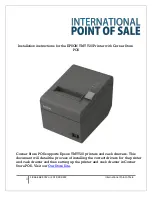
-12-
Operation
•
Protect the measuring tool against moisture
and direct sun light.
•
Do not subject the measuring tool to
extreme temperatures or variations in
temperature. As an example, do not leave
it in vehicles for a long time. In case of
large variations in temperature, allow the
measuring tool to adjust to the ambient
temperature before putting it into operation.
In case of extreme temperatures or variations
in temperature, the accuracy of the
measuring tool can be impaired.
•
Make sure that the tool is correctly
acclimatized. In the event of severe
temperature fluctuations or environmental
conditions which vary to a large degree, the
measurement accuracy of the measuring tool
may be impaired until it is fully acclimatized
again.
•
Avoid hard knocks to the tool or dropping
it. After severe external influences and in the
event of abnormalities in the functionality,
you should have the measuring tool checked
by an authorized Bosch after-sales service
agent.
Initial Operation
Switching On and Off
To take a measurement, fold the protective
cap 1 upwards. Make sure that the infrared
measuring area is not closed off or covered
while working.
To switch on the tool, press the On/Off button
9. A start sequence will appear in the display
14. After the start sequence, the measuring
tool will immediately begin to measure and will
measure continuously until it is switched off.
Note: In the first few minutes, the measuring
tool may self-calibrate several times, as the
sensor temperature and ambient temperature
have not yet been brought into line.
Performing calibration again enables precise
measurement. The thermal image freezes
briefly during calibration.
To switch off the tool, press the On/Off
button again. The measuring tool saves all
settings and then switches itself off. Close the
protective cap 1 to transport the measuring
tool safely.
In the “Settings” menu, you can choose
whether and after how much time the
measuring tool automatically switches off (see
“Switch-off time”, page 15).
If the battery or the measuring tool is not
within the operating temperature range stated
in the Technical Data, the measuring tool will
shut down automatically after a brief warning
(see “Troubleshooting – Causes and Corrective
Measures”, page 18). Allow the measuring tool
to reach to the correct temperature and then
switch it back on.
To save energy, only switch the measuring tool
on when you are using it.
Preparing for Measurement
Setting the Emissivity Degree for Surface-
temperature Measurements
The emissivity degree of an object depends on
the material and the structure of its surface.
It indicates whether an object (in comparison
with other objects with the same temperature)
emits much or little infrared heat radiation.
To determine the surface temperature, the
tool performs a contactless measurement of
the natural infrared thermal radiation emitted
by the object at which the tool is aimed. To
ensure correct measurement, the emissivity
setting on the measuring tool must be checked
before every measurement and adapted to
the measuring object if necessary.
You can select one of the preset emissivity
levels or enter an exact numerical value.
Adjust the required emissivity using the
“Measurement” >“Emissivity” menu (see
page 15).
Temperature
measurements will only be
correct if the emissivity setting and the
emissivity of the object match.
Differences in color may be caused by different
temperatures and/or different emissivity levels.
If the emissivity levels are very different, the
depicted temperature differences may differ
considerably from the actual temperature
differences.
If there are multiple objects made of different
materials or that have different structures
in the measurement range, the displayed
temperature values are only conclusive for
the objects that match the emissivity setting.













































